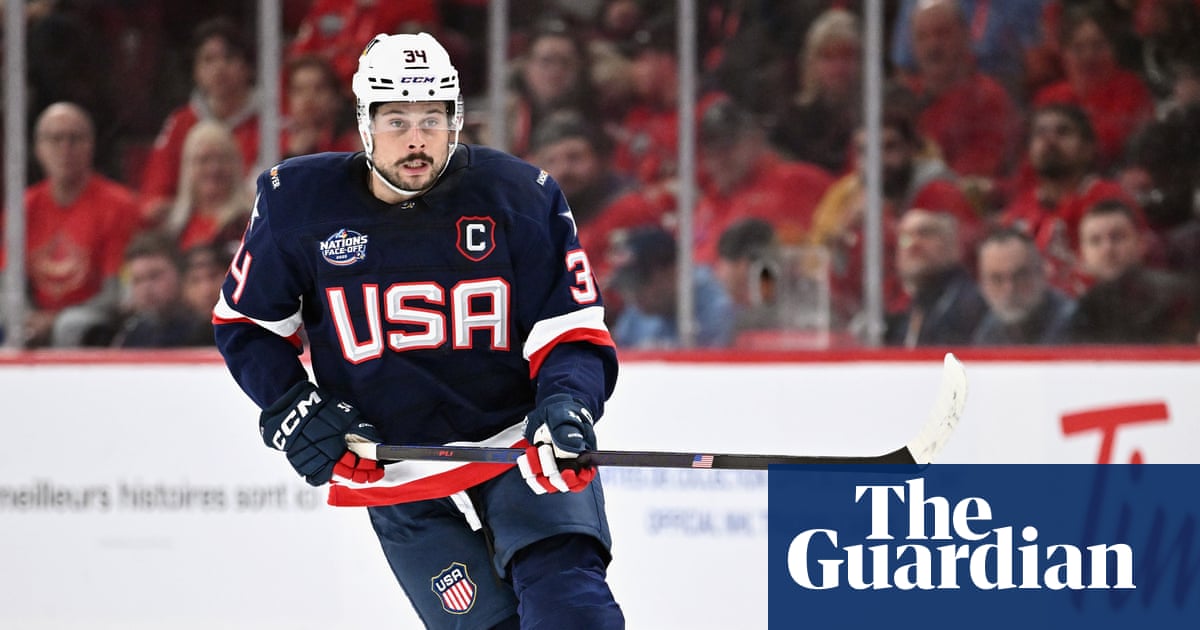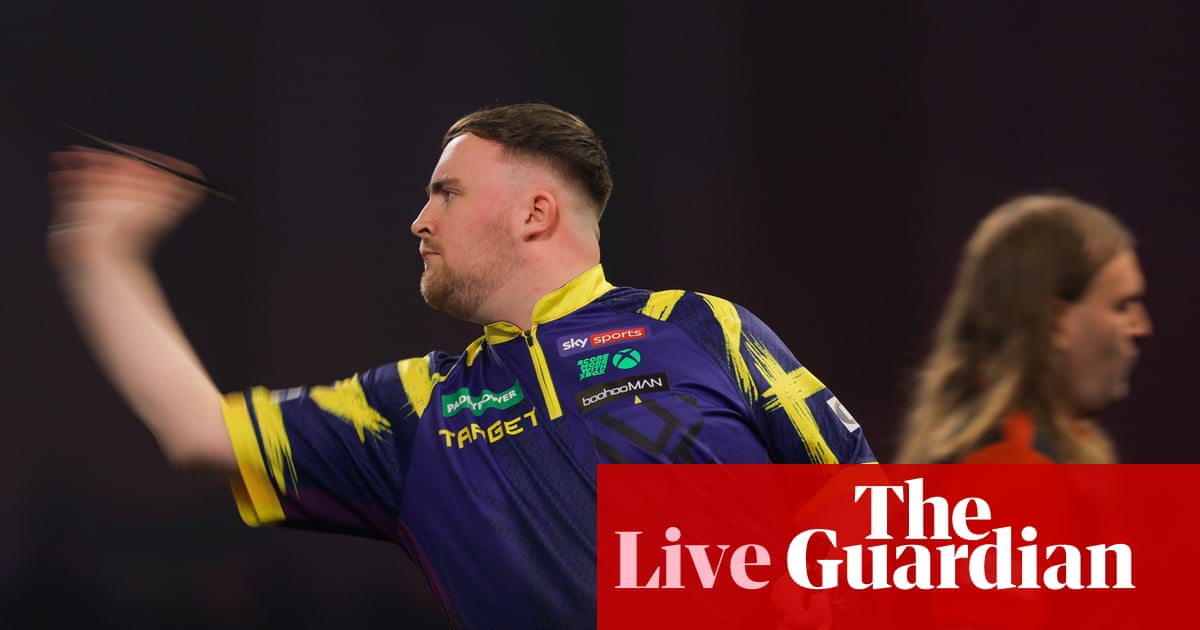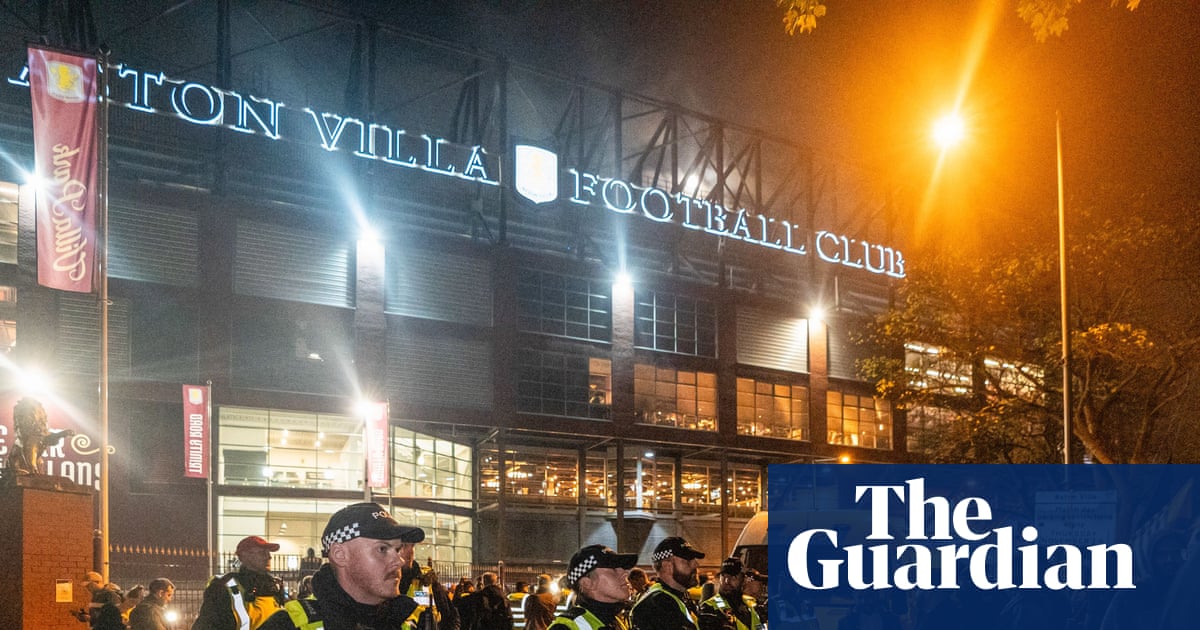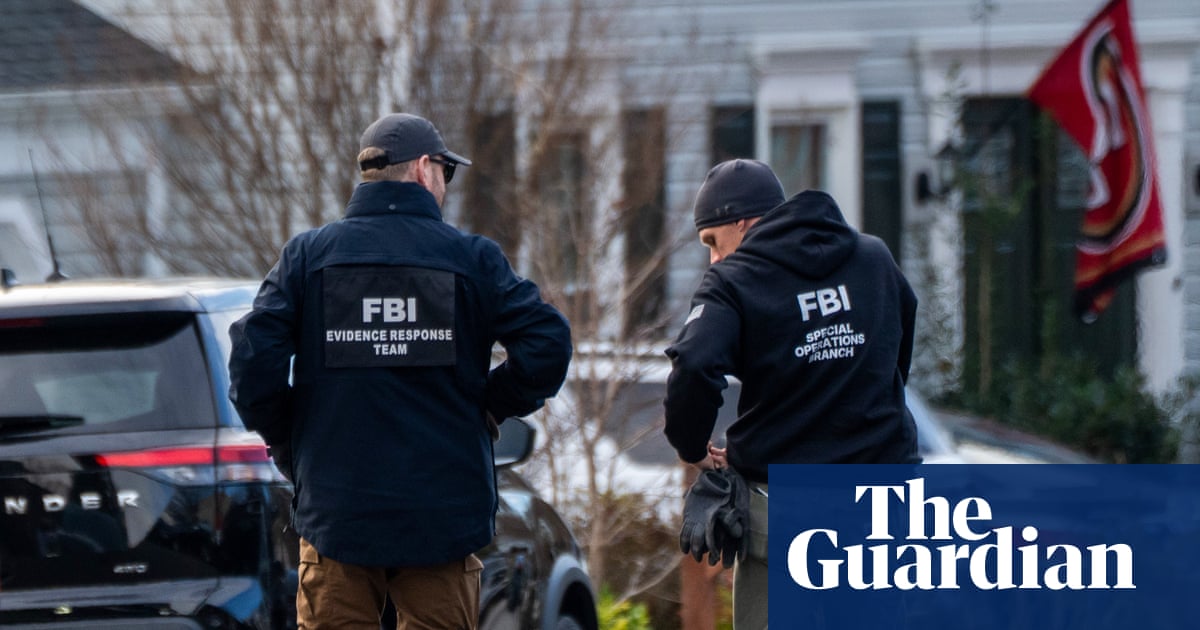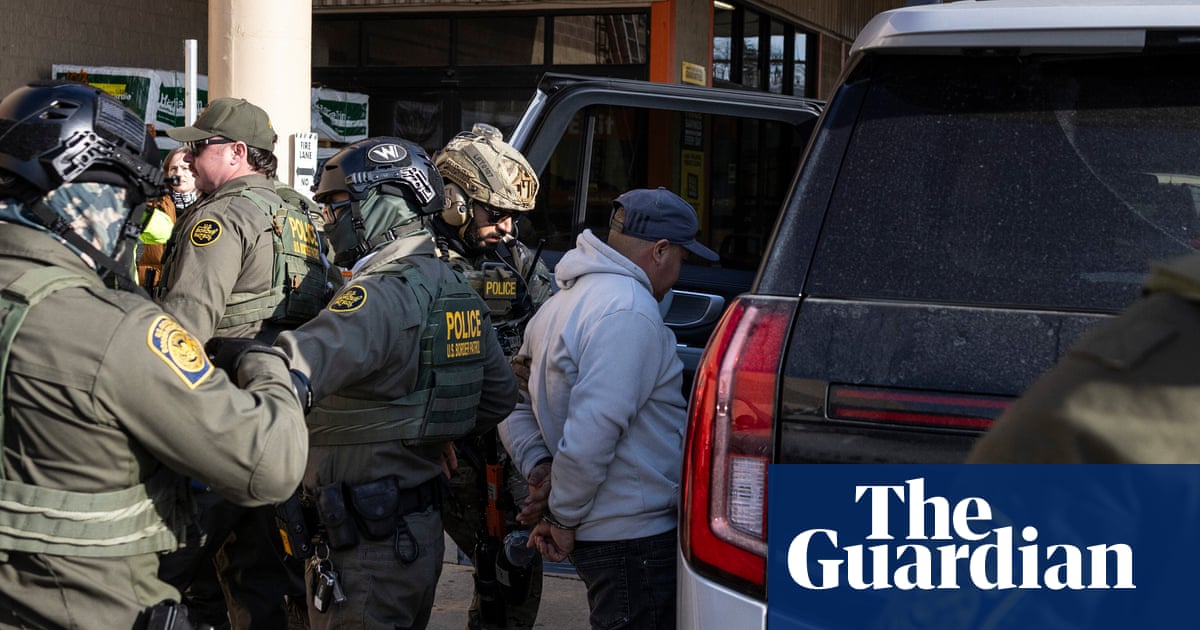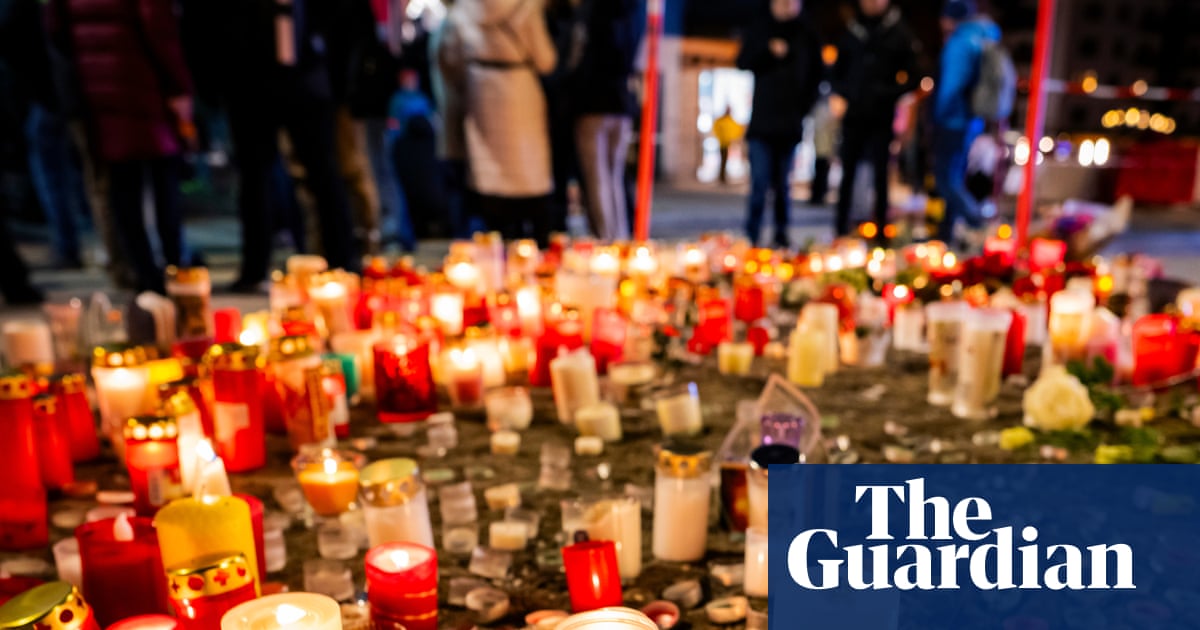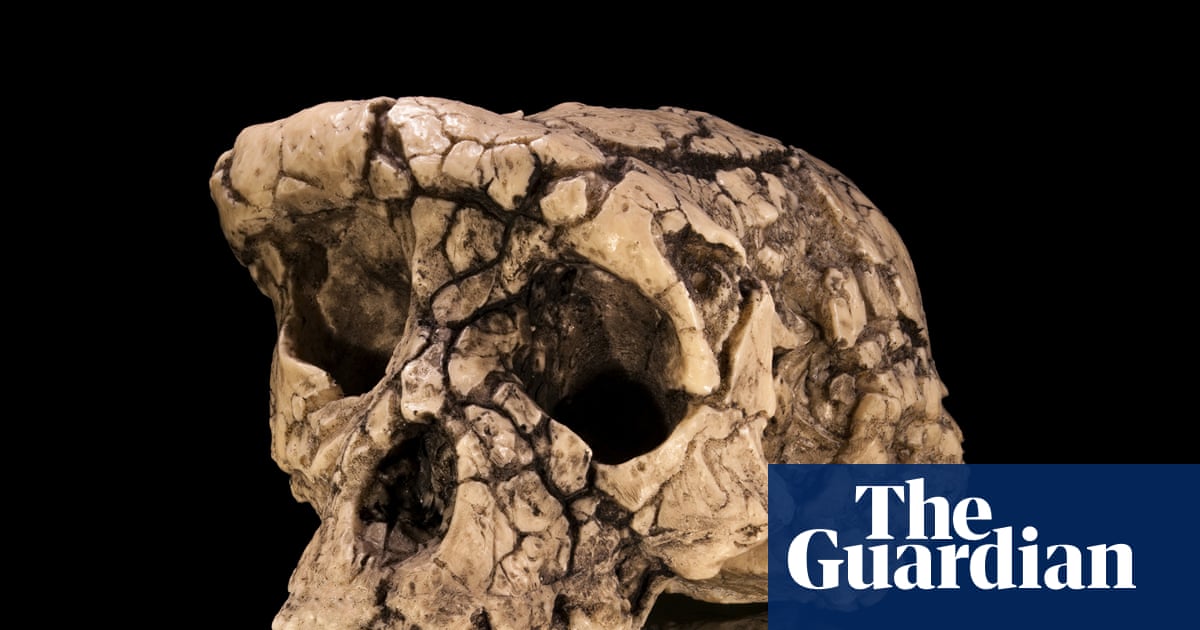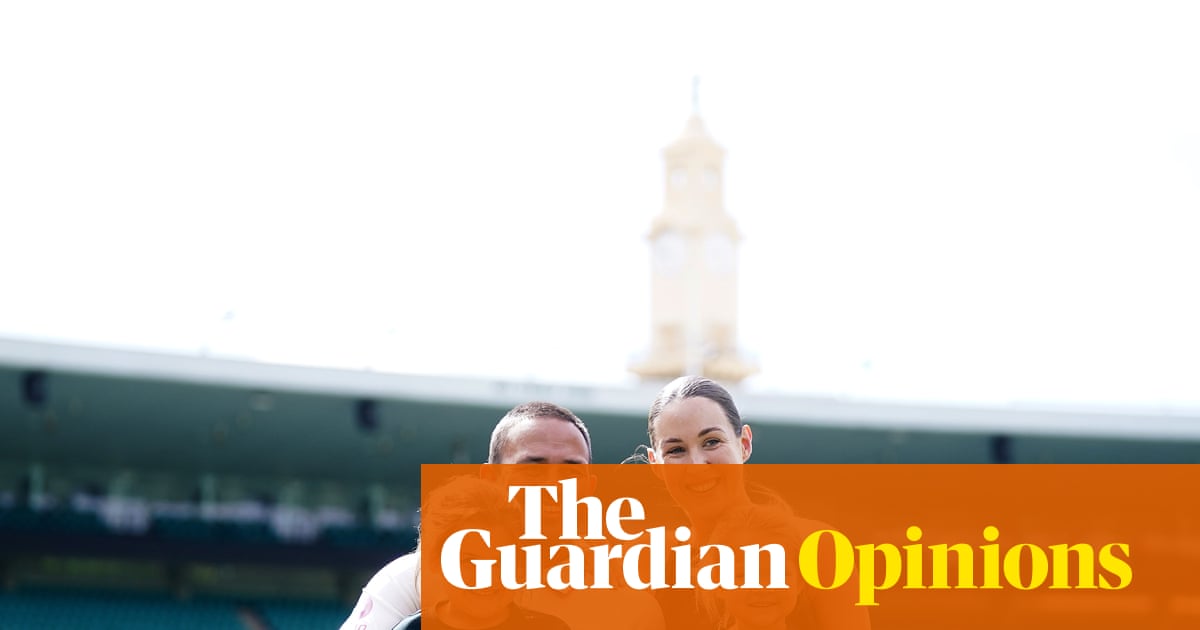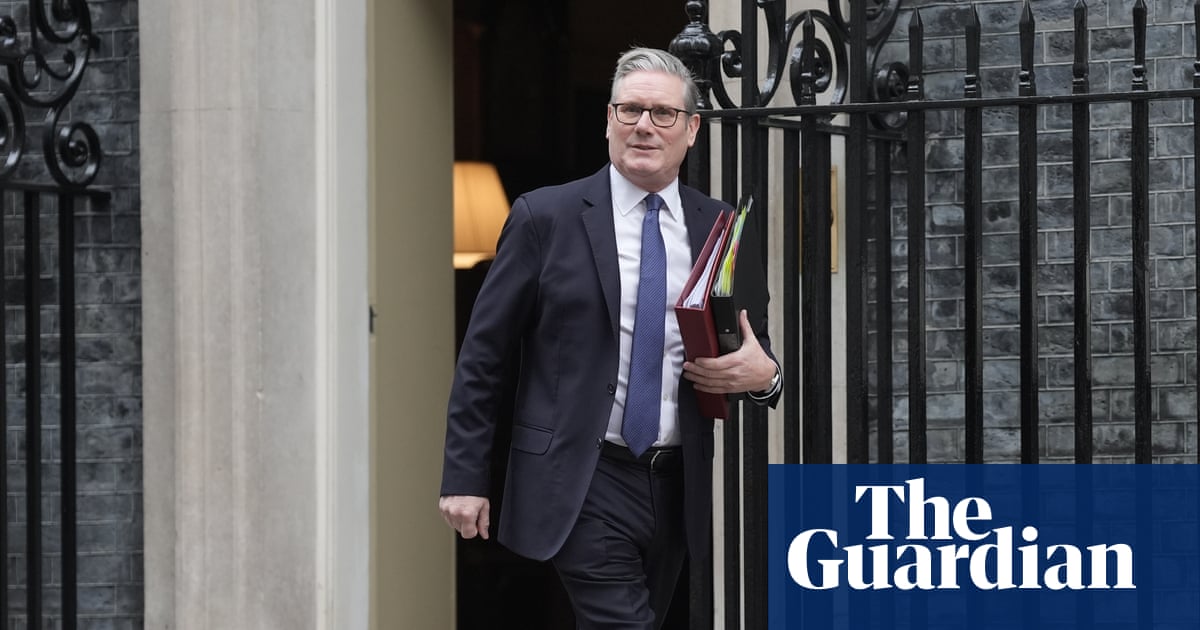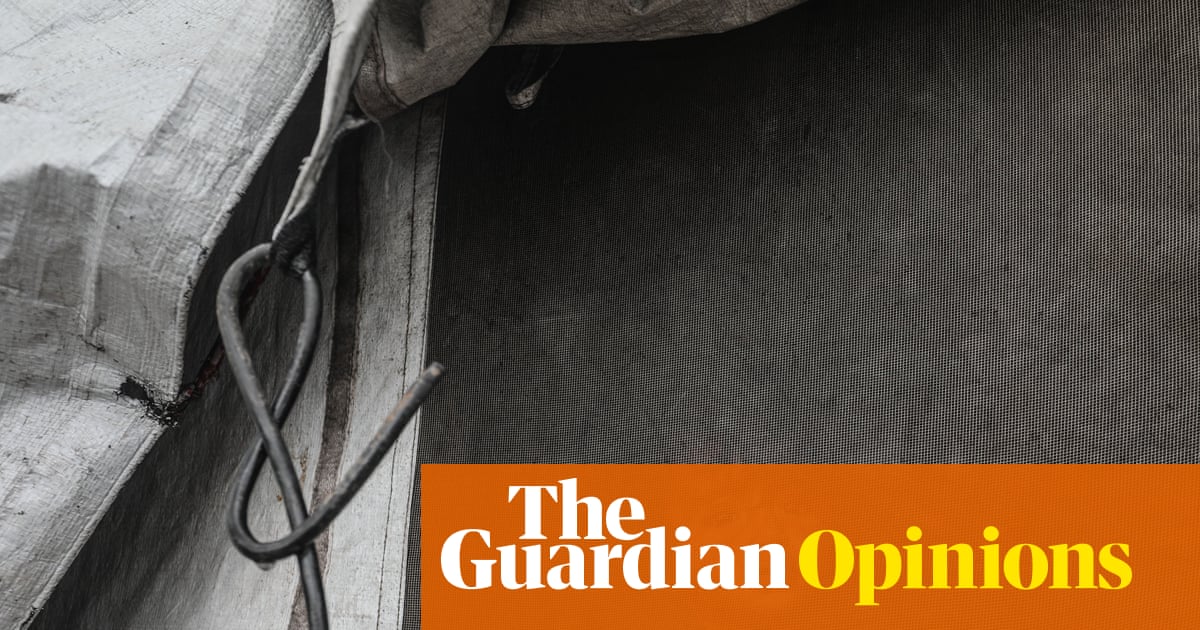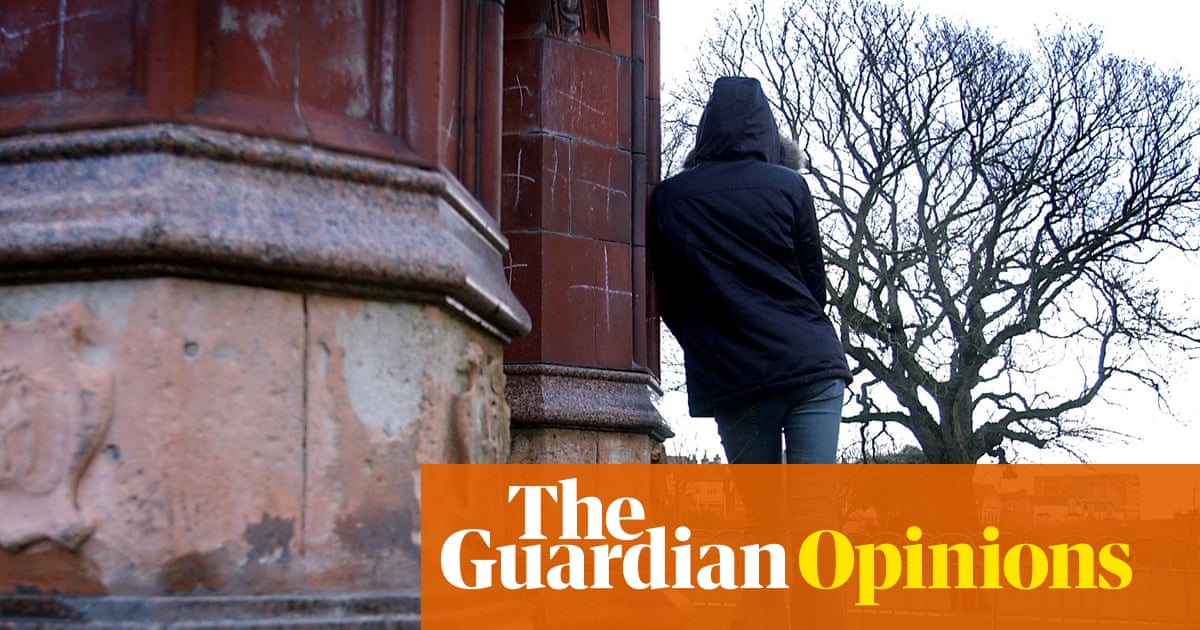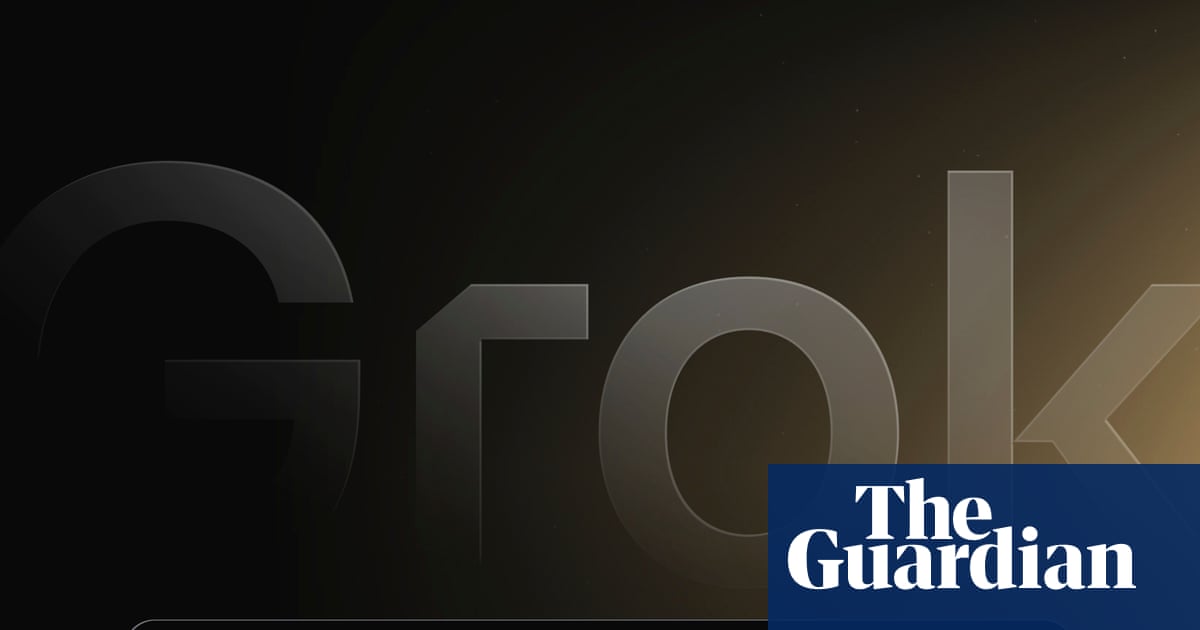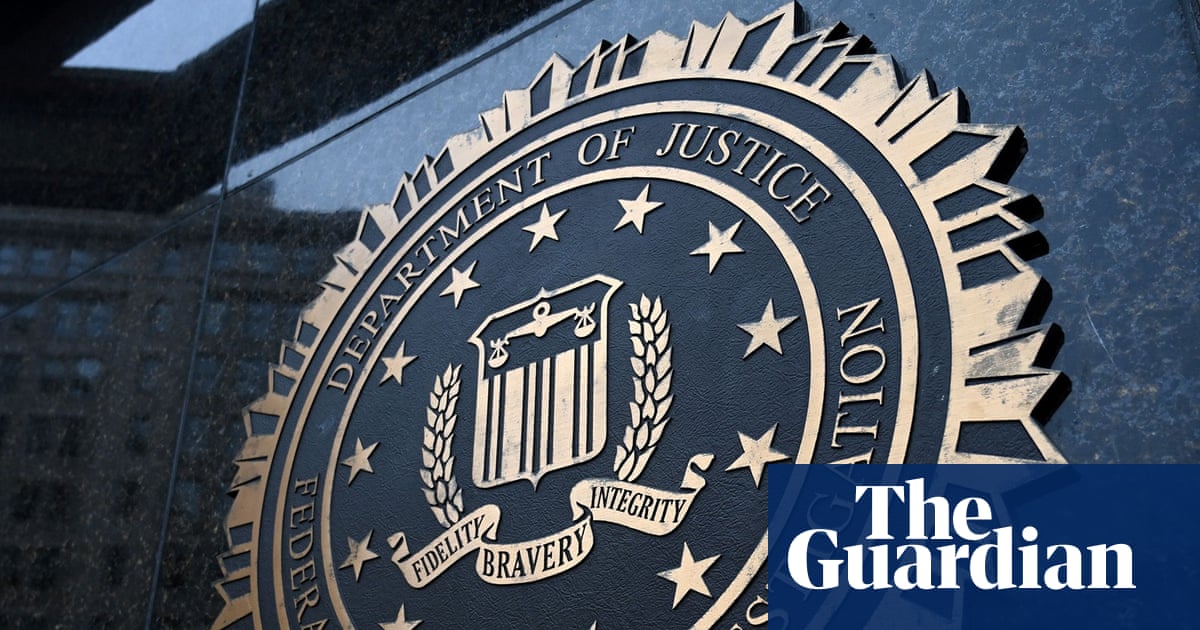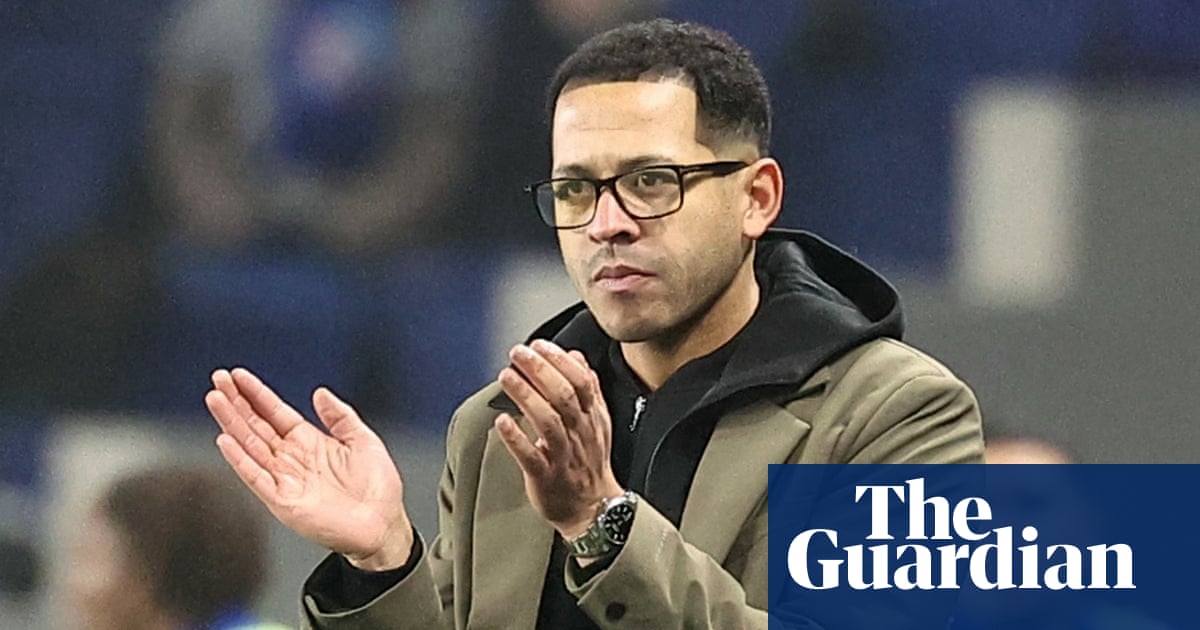‘Look out, guys, we’ve been spotted,” says our driver, raising his right arm to conceal his face as he steers. “That guy’s a known face in organised crime. We need to get out of here.” As we speed out of a north Belfast estate, he checks the rearview mirror. The pedestrian who spooked him is snapping our departing car with his phone. Once we’re safely out of view, our driver breathes a sigh of relief. “That was a close call. I didn’t mean to scare you but that was a bad boy. And he was definitely taking an interest in us.”
As part of our exclusive visit to the set of Blue Lights – which is about to roar back on to BBC One, sirens blazing and bulbs flashing – the show’s creators and police adviser have invited us on a ride-along around some of the locations that inspired the Bafta-winning drama. It’s the first time they’ve taken a journalist on such a trip and nobody’s treating it lightly.
The adviser – a retired detective I’ve been instructed to call “Roy” (not his real name, since there remain security risks for ex-police in Belfast) – told us not to use a Vauxhall or Skoda, which would be twigged as unmarked cop cars. “No matter how covert you think you’re being, they’ll rumble you,” he says. Instead, we’re in a hired SUV for a guided tour of the city’s crime hotspots, trying not to attract unwanted attention.
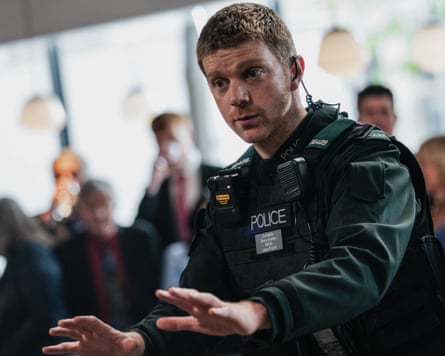
“These areas traditionally policed themselves because there’s such a stranglehold from organised crime,” says Roy, as we move from a staunch enclave of loyalism – those who wish to remain part of the UK – to one whose residents are republican – supporters of a united Ireland. “I remember a kid on this road stole a neighbour’s car and was going to be kneecapped as punishment. He deliberately assaulted my colleague to get arrested before they came to shoot him. People here lived and died by a sense of community. There was a code of ‘we don’t talk to police’. That’s changed over the last decade or two but there’s still hostility.” Graffiti reading “All cops are bastards”, “Touts out” and “Police fuck off” illustrate his point.
It makes law enforcement fraught with risk. “If we came here to arrest a drug dealer, we could be surrounded,” says Roy. “They’d cut off the road. You might have to fight your way out hand-to-hand. If it was somebody of a higher profile in organised crime or [unofficial armed force] the paramilitary, you’d bring four armoured Land Rovers, lots of backup and, in the past, maybe military support.” “Police say they don’t have no-go areas,” adds Blue Lights co-creator Adam Patterson. “But even now, there are neighbourhoods you wouldn’t enter without significant numbers and force. That’s on both sides of the community.”
A total of 302 police were killed during the Troubles. The near-fatal shooting of DCI John Caldwell in 2023, mere weeks before Blue Lights first aired, was a grim reminder that they remain a target. “That gave us pause for thought,” says Patterson. “It was difficult but we talked to police and decided to move ahead. Writing a contemporary show, it’s an occupational hazard to depict things uncomfortably close to real life.”
Retired officers are offered a sidearm for personal protection. Roy still checks under his car each morning for bombs. He says: “There are three religions in Northern Ireland: Catholic, Protestant and police. The only thing that unites the first two is their hatred of the third. This is a uniquely dangerous place to be a frontline cop.”
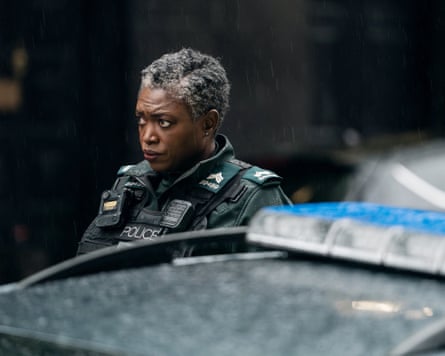
Twenty-seven years since the Good Friday agreement, Northern Ireland remains divided along sectarian lines. “You see tribalism everywhere,” says Patterson, pointing out a flag for loyalist paramilitary group the Ulster Volunteer Force on a lamppost. “You’re under no illusion about which side of the political fence you’re on.” Wealth divisions are equally stark. As Roy puts it: “You can throw a stone from a council flat and hit a Porsche.” Received wisdom says Belfast is a hard place to police but a harder place to live.
It’s against this knotty backdrop that Patterson and his writing partner Declan Lawn set their pulse-pounding drama. The pair met while working as investigative journalists on Panorama and take a documentarians’ approach to storytelling. They interviewed 30 Police Service of Northern Ireland (PSNI) officers to inform Blue Lights’ characters and flesh out their fictional world.
“We spoke to a lot of cops again for series three, distilling their experiences into the plots,” says Lawn. “Police carry so much pain. The job separates them from their communities and families. It was an emotional process. Officers sat in front of me crying about things they’d been through and what they’d sacrificed.”
As part of that commitment to realism, Roy consults on procedural authenticity and ran a boot camp for the cast. “Whenever we’re on location, police stop for selfies with the cast,” says Lawn. “They say that, despite the dramatic licence, the show captures the feeling of a shift in Belfast.”
Blue Lights began by following rookie response officers in republican west Belfast. The second series moved across to the loyalist east side. As we return for series three, they’re two years into the job, on the verge of passing their probation and becoming “actual peelers”. Venturing into a different part of the city’s criminal ecosystem, behind the high gates and leafy hedges of south Belfast, they slowly realise how little they still know.
“We portray the professional apparatus around organised crime,” says Lawn. “The lawyers and accountants who facilitate it.” “We also look at how the appetite for cocaine, especially in affluent areas, filters down to the job of response cops,” says Patterson. “It causes domestic violence, driving offences, suicides, overdoses – which cops call a ‘coke stroke’. We follow the money to see what fuels the city’s drug trade.” South Belfast is an area close to home for both showrunners. “It’s literally where we live,” laughs Patterson. “If you can’t write that, you’re in trouble.” Lawn adds wryly: “After it airs, we’ll probably have to move.”
Series two drew criticism for its workplace romances. “That actually came from our research,” says Lawn. “There’s a surprising amount of in-station romance because cops here can’t go on dating apps for security reasons. The only people it’s safe to consort with are colleagues. Riding around in a car together puts intimacy on fast-forward. This season, all those relationships are put under strain.”
Scripts full of gallows humour and police lingo are also rooted in reality. “‘Notebook wanker’ [an officer who does everything by the book] and ‘sneaky beakies’ [MI5 agents] were directly lifted from real cops,” admits Lawn. “So was Gerry Cliff’s catchphrase ‘Take a beat’.”
Ah, the much-missed Gerry. The veteran officer, played with craggy charisma by Richard Dormer, was a cult hero until fatally gunned down on duty. “One cop told me about arresting a guy on the street,” laughs Lawn. “The car journey to the custody suite was silent until he leaned forward in his cuffs and said: ‘Guys, I’m really sorry about what happened to Gerry.’ As if they were recently bereaved! They were like: ‘Thanks, mate, we appreciate your concern.’”
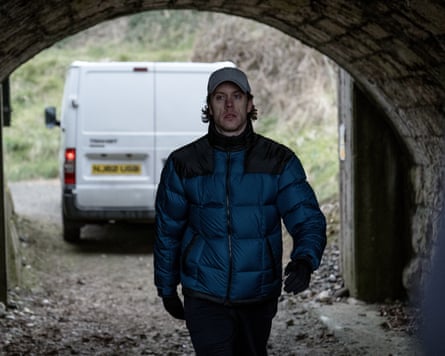
Do they regret killing him off? “Not at all,” says Lawn. “It was very deliberate. We wanted to explore the legacy of death which most police dramas tend not to do. Somebody dies and two episodes later, they’re never referred to again. That’s not real life. It’s pretty radical for Gerry to be gone but not forgotten. He’s still present – in his wife Sandra’s grief, in the memorial plaque on the station wall. A new character, played by Michael Smiley, knew Gerry back in the day at Special Branch, so we learn about different sides of him.” A fourth series is already commissioned and being written. “As the show goes on, we answer questions about why Gerry died,” says Patterson. “Trust us, by the end, it’ll all make sense.”
We pull up at Netherleigh House, the ex-government building that doubles as Blackthorn police station, to watch filming in progress. Once you’re inside its bustling corridors and locker rooms, full of patrol boots and rolls of barrier tape, it’s uncannily convincing. I pause to pay my respects at Gerry’s plaque. “Everyone does that when they first come here,” says Lawn.
I grab a chat with actors Siân Brooke and Martin McCann, who play constables Grace Ellis and Stevie Neill. The will-they-won’t-they colleagues were last seen driving off into the sunset in a taxi. “A year on, they’re now a couple,” says Brooke. “They’re living together, even looking at houses to buy.”
Tensions arise when Stevie is offered a temporary promotion to sergeant. “He’s a pragmatist,” says McCann. “The bucket man who shovels shit. Stevie gets the job done, finishes his shift, then goes home.” “Whereas Grace is an ex-social worker who wants to make a difference,” adds Brooke. “That causes friction. But, oh my God, if I had a penny for every time somebody comes up and asks if they’ll end up together. There’s genuine affection for them. People are invested.”
Three series in, the duo have grown accustomed to their uniforms. “Sometimes sitting in the patrol car, the stab vests ride up around our heads,” says McCann, “and we look like Ninja Turtles. Two neckless wonders.” Brooke admits the role leaks into her own life: “I’ll be in my car, spot things on the street and say: ‘What’s going on over there?’ My husband has to remind me: ‘Siân, you’re not a police officer.’”
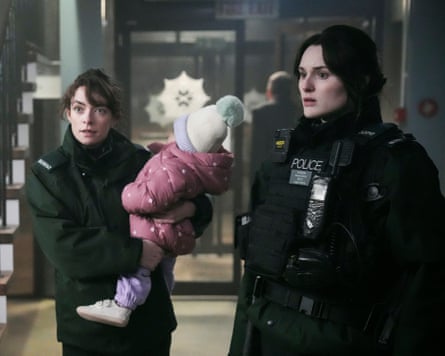
Go through a door and we’re in a luxurious new location: a swanky members’ club, presided over by Cathy Tyson – along with Smiley, this year’s other major cast addition. “The club is basically a front for criminal enterprise,” says Lawn. “It’s our way into issues like child exploitation, drug dealing on encrypted messaging apps and white-collar clients.” I also watch a funeral scene (no spoilers as to whose funeral). So sombre is the atmosphere and so powerful the performances, it’s still moving by the sixth take.
Roy believes the show fulfils an important function by humanising the police: “Police used to be represented on TV by a silhouette of a flak jacket and a rifle. Just another part of state oppression. Blue Lights gives us a voice. We see the person behind the uniform.”
It also portrays a Belfast where attitudes are slowly changing. “There’s a long way to go but we’re optimistic,” says Patterson. “It’s a show about trying to move forward, not be pulled backwards by history. All communities are proud of the show. I think that’s because it is uncompromising and written in our vernacular. Declan and I aren’t just journalists. We’re Belfast citizens who love this chaotic place for all its flaws.”
It’s not just our fictional heroes who get flung into life-or-death situations. “We were filming on location early in the series,” says Lawn. “A crowd gathered to watch, as they often do, when one guy collapsed with a heart attack. There was this weird expectation that our actors would spring into action. Two extras dressed in uniform were like: ‘We’re not actually cops.’ But they ended up giving CPR until paramedics arrived. We checked the next day and the man was OK. Even fake cops can be useful now and again.”
“Sharp eyes save lives” is an oft-quoted mantra in the show. It seems that Blue Lights saves lives too.
Blue Lights returns to BBC One on 29 September at 9pm and on iPlayer.

 3 months ago
83
3 months ago
83

